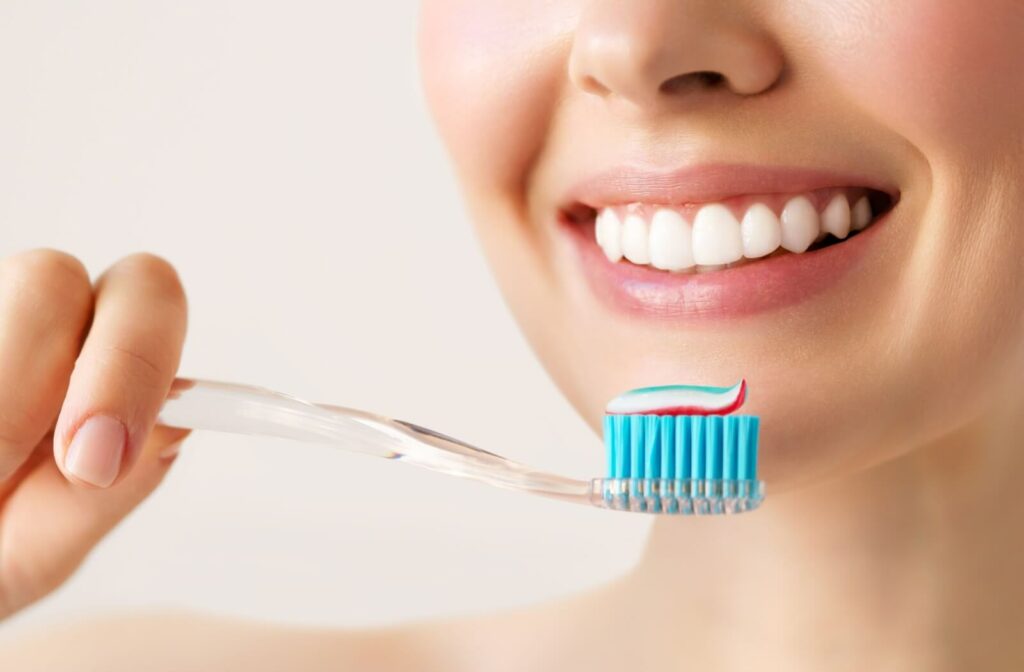Bad breath can be embarrassing, and for many people, it feels impossible to manage despite their best efforts. If you’re brushing, flossing, and using mouthwash daily but still noticing an unpleasant odour, your cavities might be to blame. Cavities can affect your dental health and contribute to bad breath.
We’ll explore how cavities are able to cause bad breath, signs to watch for, and what you can do to treat and prevent cavities, offering you the tools to help maintain both oral health and fresh breath.
What Are Cavities?
Cavities, also known as dental caries, occur when bacteria in your mouth cause tooth decay. Teeth consist of three layers:
- Enamel (the hard, outer layer that protects your tooth).
- Dentin (the soft layer beneath the enamel that supports the tooth).
- Pulp (the innermost layer containing nerves and blood vessels).
Bacteria in your mouth feed on food particles, producing acid that sticks to your teeth. If oral hygiene practices, such as brushing and flossing, are not working, plaque forms on the enamel. Over time, this acid wears through the enamel, creating small holes and exposing the inner layers of the tooth, which leads to cavities.
How Cavities Cause Bad Breath
The bacteria that cause cavities can also produce foul-smelling gas as they break down food. This can lead to persistent bad breath that even the strongest mouthwash can’t cover up.
Additionally, cavities create pockets and crevices where food particles can become trapped. Bacteria thrive in these spaces, feeding on trapped food and producing odours. Left untreated, the decay can spread deeper into the tooth and cause gum inflammation, further contributing to bad breath.
If bad breath persists no matter how thoroughly you clean your teeth, it might be a sign of a cavity or other underlying dental issues.
Signs You May Have a Cavity
Want to know if a cavity might be the cause of your bad breath? Here are some common symptoms to watch for:
- Tooth sensitivity to hot, cold, or sweet foods and drinks.
- Visible holes or pits in your teeth.
- Pain when chewing or biting down.
- Discoloration or dark spots on the tooth’s surface.
- Swelling, redness, or tender gums around the affected tooth.
- Sometimes the tooth can feel uneven or rough when touched with your tongue.
- Persistent bad breath or a constant unpleasant taste in your mouth.
If you notice any of these signs, book an appointment with your dentist. Early detection can make a difference in preserving your teeth and alleviating bad breath.
How Cavities Are Treated
Fortunately, cavities are usually treatable using various methods, depending on the stage of the decay. Here’s what your dentist might recommend:
Fluoride Treatments
This method is ideal for early-stage decay that hasn’t broken through the enamel. Fluoride helps remineralize your teeth, restoring their strength and helping to prevent further decay.
Fillings
For more serious cases where a cavity has formed, your dentist will remove the decayed area and fill it using a resin material. Fillings restore the tooth’s structure and prevent further damage, helping to maintain the tooth’s function and appearance.
Root Canal
If the decay has reached the pulp, a root canal may be necessary. This involves removing the infected pulp, disinfecting the inside of the tooth, and sealing it with a filling or crown to protect it from further harm.
Tooth Extraction
For severe cases where the damage is beyond repair, the tooth may need to be removed. While this is typically a last resort, your dentist can discuss tooth replacement options, such as implants or bridges, to restore your smile.
Each treatment option aims to eliminate decay and restore your tooth back to health while addressing the primary cause of bad breath.
Can You Prevent Cavities & Bad Breath?

Create Photo Editor and Graphic Design Maker | Shutterstock
Yes! Consistent, proactive oral care can help prevent cavities and bad breath. Here’s a checklist to keep your teeth healthier and your breath fresher:
- Brush twice daily using fluoride toothpaste.
- Floss daily to remove plaque and food particles from between teeth.
- Stay hydrated to prevent dry mouth, which can exacerbate bad breath.
- Visit the dentist regularly (every six months) for cleanings and check-ups.
- Limit sugary and acidic foods that feed cavity-causing bacteria.
- Use an antibacterial mouthwash to reduce bacteria in your mouth.
By following these habits, you can keep your teeth strong and discourage cavities and gum disease from taking hold.
Struggling with Bad Breath? Take Action
Bad breath could be a sign of a more serious dental issue, like cavities. Don’t ignore it. If you’re experiencing persistent bad breath or any of the signs of a cavity, schedule an appointment with your dentist.
At Belman Dental Centre, we specialize in comprehensive care to help your smile stay healthy and fresh. Book a visit with our warm and professional team today—we’re here to help you regain your confidence and improve your oral health.



